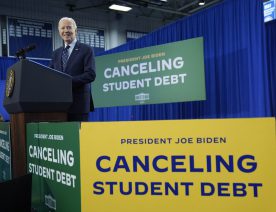
May 9, 2025
As Donald Trump cuts federal funding from some universities and threatens to revoke Harvard’s tax-exempt status, most of the public believes that higher education makes significant contributions to the United States. Many also have mixed views about the proposals to penalize them.
Six in 10 adults favor maintaining federal funding for scientific and medical research at colleges and universities while only about 3 in 10 support withholding federal funding from institutions for noncompliance with the president’s goals or removing their tax-exempt status.
There is bipartisan support for continuing research funding to colleges and universities. However, Republicans are significantly more likely than Democrats or independents to support withholding federal funding for colleges and universities that do not comply with requirements related to the president’s agenda or removing their tax-exempt status. Most Democrats oppose these actions.
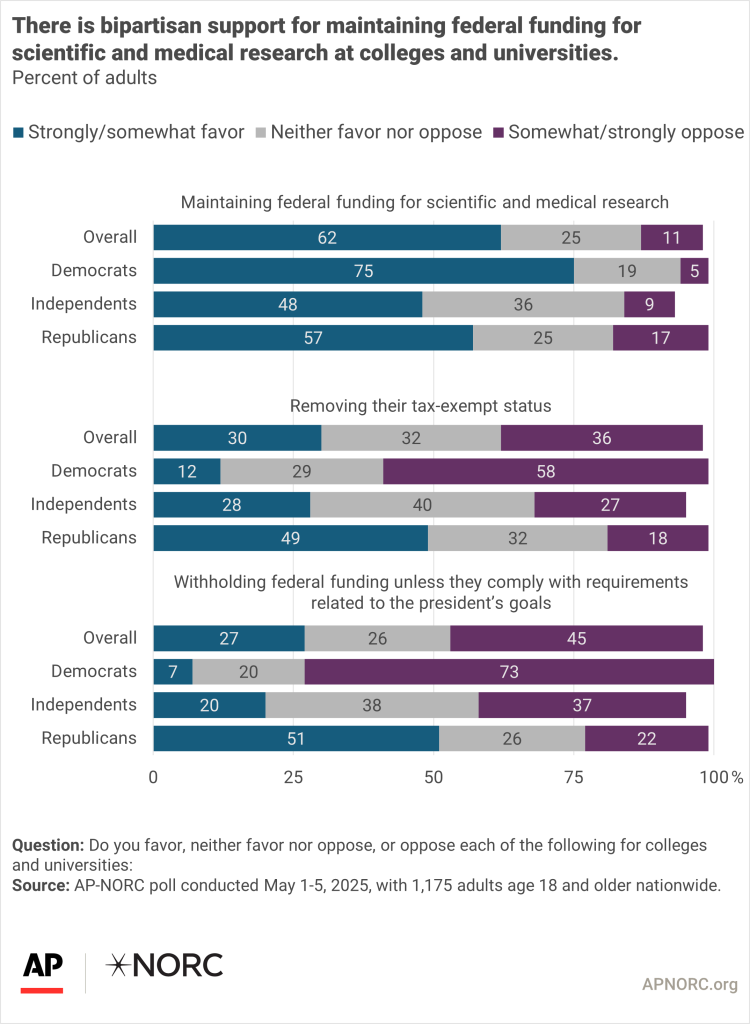
Sixty-four percent of adults think that colleges and universities make positive contributions to medical and scientific research and 63% feel they encourage new ideas and innovative technology. Half feel the same about their contribution to the quality of the U.S. workforce and 4 in 10 think that colleges and universities make a positive impact to defense and military research. Few think universities have a negative impact.
College graduates are more likely than those without a degree to think colleges and universities make a positive impact on medical and scientific research (79% vs. 55%), innovative ideas and technology (73% vs. 56%), the quality of the U.S. workforce (62% vs. 39%), and military related research (48% vs. 35%).
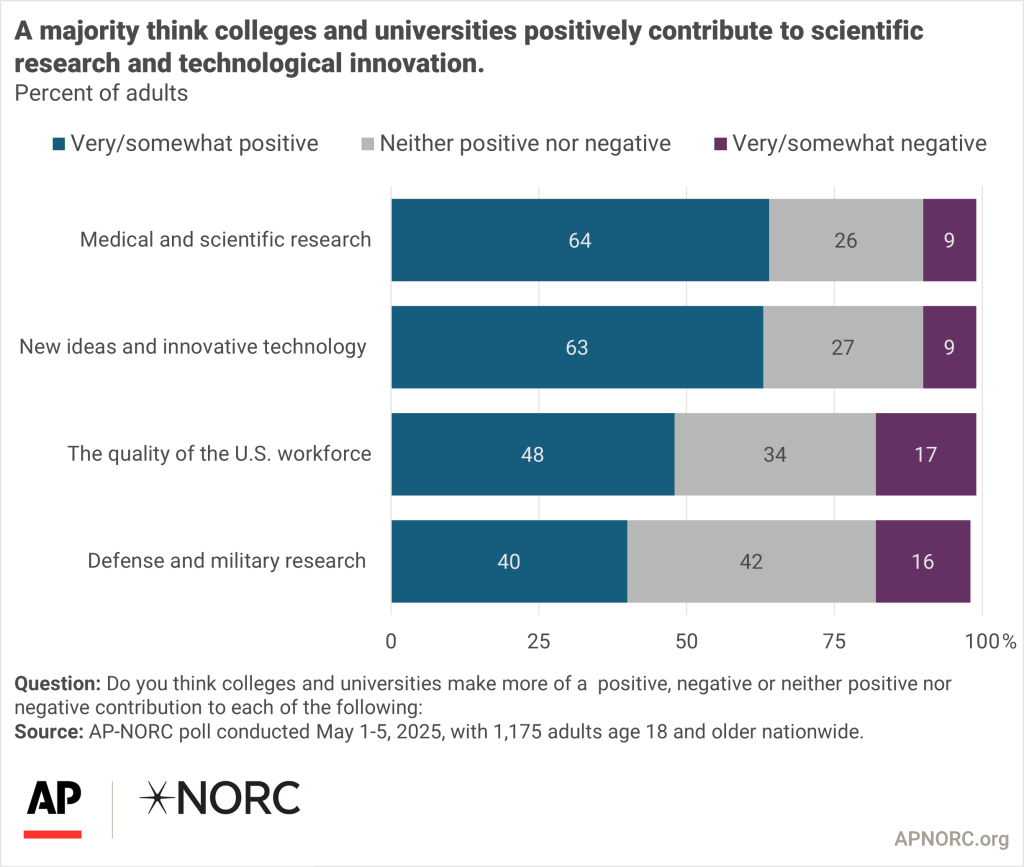
Over half of the public are concerned about the cost of tuition at colleges and universities and about 4 in 10 worry about antisemitism on campuses. Around a third are concerned about a liberal bias on campuses or the cancellation of international students’ visas.
Republicans are more likely than Democrats to be concerned about antisemitism or liberal bias on campus. Democrats are more likely to be concerned about international students’ visas being revoked. There is bipartisan concern for the cost of tuition in higher education though.
Those with a college degree are more likely than those without a college degree to be concerned about the cost of tuition (67% vs. 53%) and international student visas being canceled (43% vs. 30%).
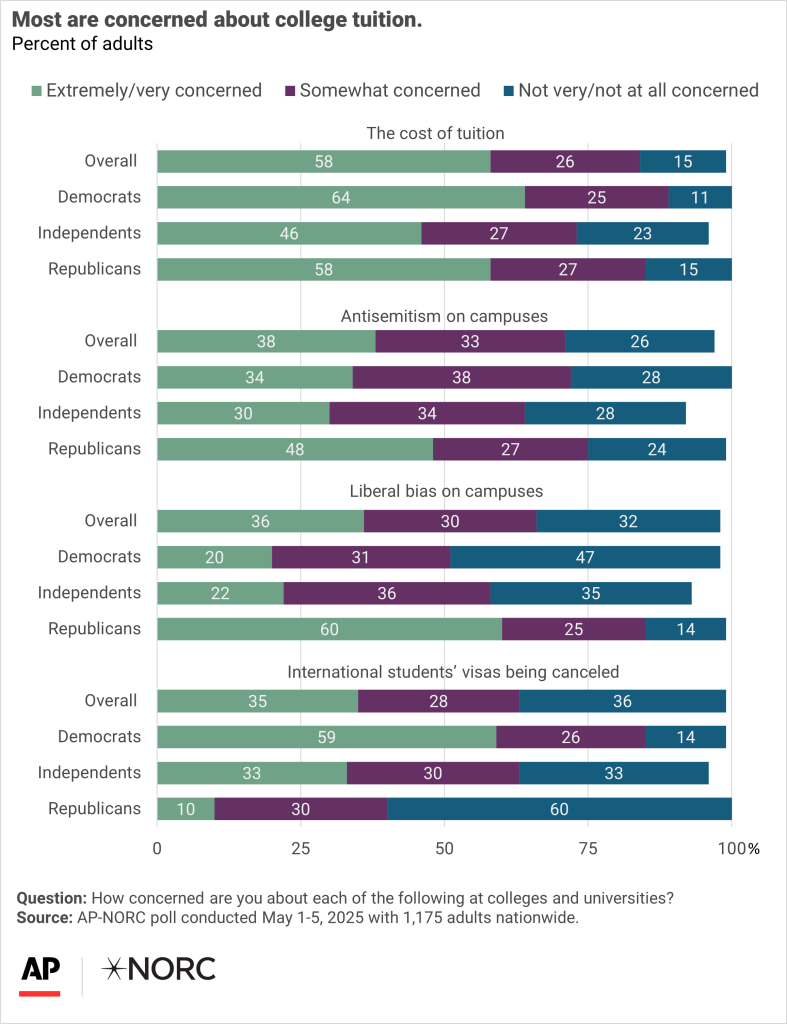
The public feels that liberals can most freely speak their mind on college campuses, with 4 in 10 saying that they can do so a lot. A University of Chicago/AP-NORC poll conducted in September 2023 found that the public was slightly more likely to think liberals could freely express themselves on college campuses, with 47% saying they could do so a lot.
Three in 10 say students and professors can freely speak their mind a lot on campus, and only a quarter say the same about conservatives. Only 1 in 10 felt that any of these groups can’t express themselves freely at all.
Democrats and Republicans feel similarly about students’ ability to speak their mind freely on campus. Republicans are more likely than Democrats or independents to say that liberals and professors can freely express themselves in higher education settings, while Democrats are more likely than Republicans or independents to feel conservatives can freely discuss their views on campus.
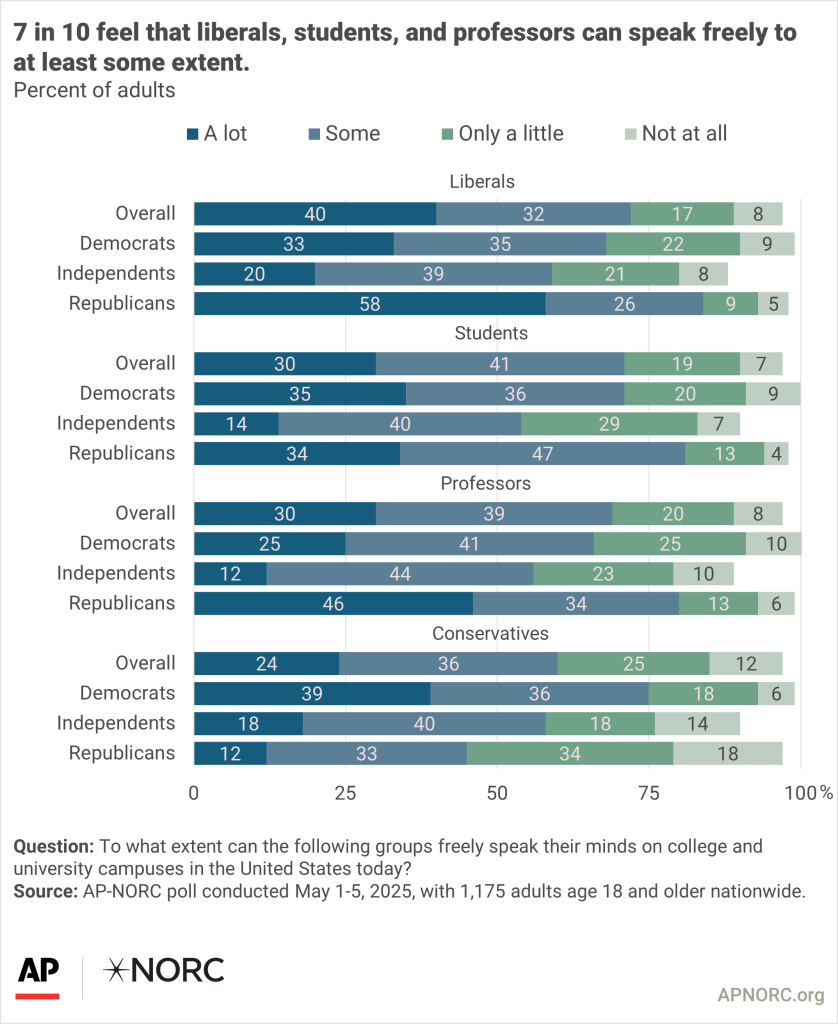
People are more likely to support than oppose university services to help underrepresented students and courses that teach about racism. Half favor support services, like clubs and mentorship programs, for students from underrepresented groups at colleges and universities. Four in 10 favor scholarships for those students, courses that teach about racism, and diversity, equity, and inclusion programs. About a third of the public neither favors nor opposes any of these policies. DEI policies are the most unpopular, with 3 in 10 opposing their implementation.
Democrats are more likely than Republicans or independents to favor these policies at colleges and universities.
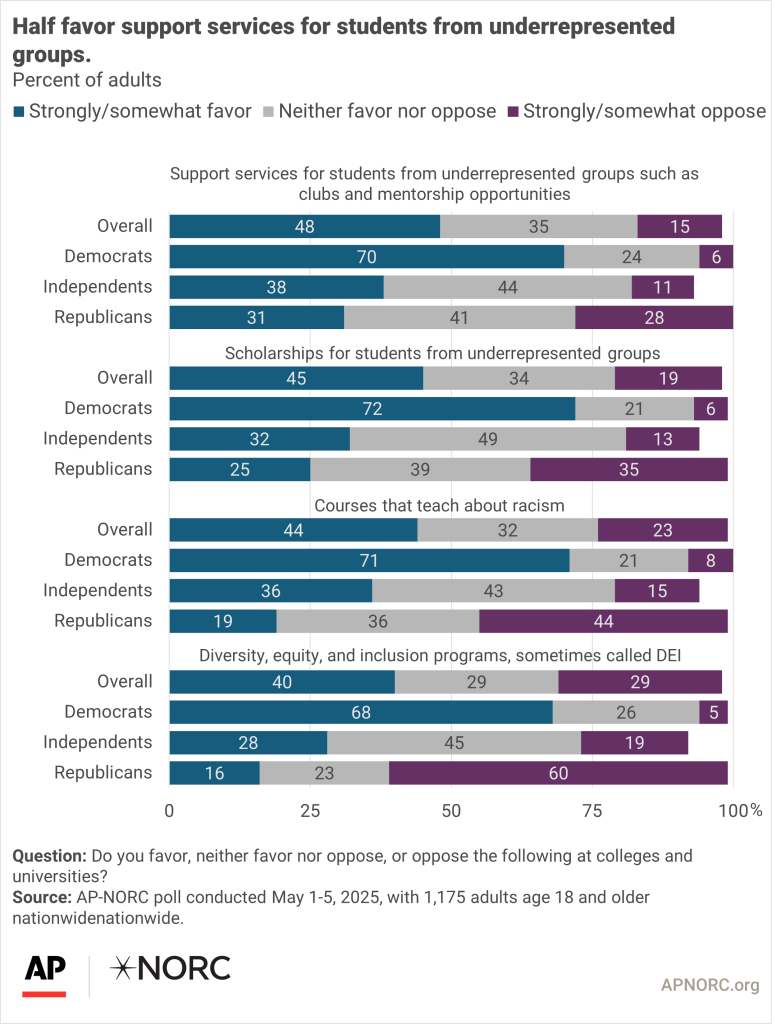
Six in 10 adults disapprove of how Trump is handling issues related to colleges and universities. Democrats and independents are substantially more likely to disapprove of how Trump is handling higher education than Republicans, who mostly approve. College graduates are slightly more likely than those without a degree to disapprove of how Trump is handling issues related to colleges and universities.
The public’s view of how the president is dealing with higher education is in line with his overall approval rating.
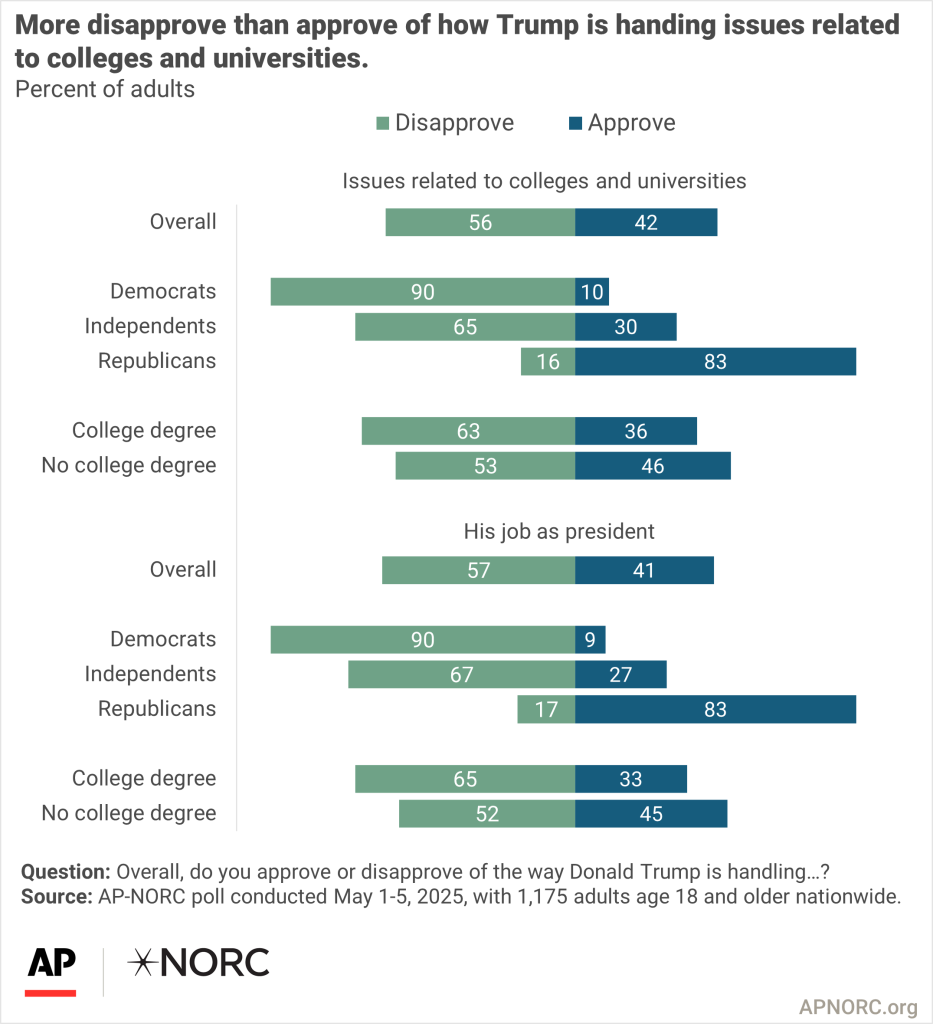
The nationwide poll was conducted May 1-5, 2025 using the AmeriSpeak® Panel, the probability-based panel of NORC at the University of Chicago. Online and telephone interviews using landlines and cell phones were conducted with 1,175 adults. The overall margin of sampling error is +/- 4.0 percentage points.
- Suggested Citation: AP-NORC Center for Public Affairs Research. “Few support punitive funding cuts to colleges and universities” (May 2025). https://apnorc.org/projects/few-support-punitive-funding-cuts-to-colleges-and-universities/






